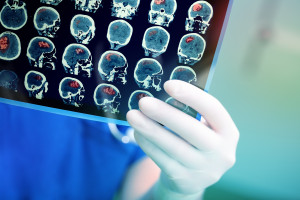Short path to overweight and diabetes. Stop as soon as possible

Author: BM • Source: Rynek Zdrowia • Published: June 27, 2025 11:10 • Updated: June 27, 2025 11:10
In the diet therapy of type 2 diabetes, it is extremely important to introduce a number of dietary restrictions to effectively control blood glucose levels. It is important to limit the consumption of simple sugars and animal fats, as well as consistently avoid snacking between meals.
- Diabetes is a disease in which the main lifestyle modification that influences the course is a change in diet.
- It is absolutely necessary to limit the consumption of all forms of sugar, such as white, cane or coconut, as well as honey, syrups and sweets with a high sugar and fat content.
- It is recommended to avoid refined flour, white bread, white rice and white pasta, as well as all sweetened carbonated drinks, energy drinks and alcohol.
- You should limit your consumption of fatty meats and cold cuts, and avoid lard, bacon, hard margarine and tropical oils such as palm or coconut.
In the diet therapy of type 2 diabetes, it is crucial to avoid certain habits and products. First of all, you should limit the consumption of simple sugars and animal fats.
Snacking between meals is not recommended, including drinking energy-providing fluids such as coffee with milk/sugar or sweetened teas.
Any snack or drink containing sugar causes an increase in blood glucose and insulin levels, and persistent hyperinsulinemia negatively affects tissue sensitivity and increases appetite, making it difficult to lose weight.
Among grain products you should avoid:
- refined flour,
- light bread (e.g. toast, Kaiser rolls, regular bread, butter rolls),
- breakfast cereals with added sugar (corn, chocolate, muesli, crunchy),
- small groats (couscous, semolina, cornmeal),
- white rice,
- light pasta (wheat, rice).
Fruit should be consumed in smaller quantities, especially avoiding overripe and sweeter ones. Candied fruit and fruit in syrups are completely not recommended, which we like to reach for especially in the morning during breakfast.
Vegetables, however, should not be served with fatty sauces or roux.
Not only sweets are forbidden. Also fatty meats and cheesesWhen it comes to protein and fat foods, you should limit:
- fatty meats (pork, beef, lamb, goose, duck),
- fatty meats (e.g. ham, salami, headcheese, bacon),
- canned meat,
- offal meats,
- pates,
- sausages,
- sausages,
- sausages.
Red meat should be eaten occasionally, no more than 350-500 g per week. Dairy products should be avoided: full-fat milk , condensed milk, cream, coffee cream , fruit yoghurts with added sugar, desserts.
Full-fat white and yellow cheeses, processed cheeses, feta cheese, blue cheeses (brie, camembert, roquefort), full-fat mozzarella and mascarpone are also not recommended. In the group of fats, lard, bacon fat, tallow, hard margarine, tropical oils (palm, coconut) and mayonnaise are not recommended.
Eggs should not be fried in large amounts of fat (e.g. butter, bacon, lard) or served with mayonnaise.
Potatoes are not recommended with the addition of fatty sauces , roux, cream or butter, as well as in fried form, as French fries, crisps or potato pancakes fried in fat.
You should absolutely limit your consumption of sweets and products containing sugar , such as cakes, cookies, bars, milk and white chocolate, halva, doughnuts, angel wings and candies.
You should avoid all types of sugar (white, cane, brown, coconut), as well as honey, syrups (maple, date, agave) and high-sugar jams.
Research indicates that artificial sweeteners (sucralose, acesulfame K) may have a potentially adverse effect on the composition of the microbiota , therefore their regular consumption is not recommended.
In the snack group, salty snacks such as chips, salty sticks, puffs, crackers, nachos, crisps, as well as salted nuts and seeds, nuts in chocolate, caramel or honey are not recommended .
Sweetened beverages should be replaced with fluids without added sugar , and alcoholic beverages should be eliminated from the diet because they increase postprandial glucose and insulin levels.
Carbonated and non-carbonated sweetened drinks, energy drinks, nectars, highly sweetened fruit syrups and drinking chocolate are not recommended.
Preparation matters. This is something you'd rather not doThe method of preparing meals is also important: avoid crushing and overcooking meals, as this affects the rate of their digestion and the rate of increase in glucose and insulin concentration in the blood after eating. Technological processing methods that are not recommended include deep-fat frying, stewing with prior frying, baking with the addition of a large amount of fat, and breading.
Ready-made fast food (e.g. casseroles, hot dogs, hamburgers, kebabs), frozen pizzas, breaded delicatessen products, fatty sauces, instant soups and instant dishes (sauces, soups, instant oatmeal) should be eliminated. As for spices, do not exceed the recommended daily amount of salt of 5 g (about one flat teaspoon), including salt from food products. Spice mixtures with a large amount of salt, stock cubes and liquid spices that enhance flavor are not recommended.
Is This Diabetes? Some Non-Obvious SymptomsIn addition to the classic signals, such as increased thirst, frequent visits to the bathroom and weight loss, diabetes can also manifest itself through a number of less obvious symptoms that often go unnoticed. It is worth paying attention to these signals, as they may indicate the need for diagnostics:
- recurrent infections - frequent skin infections, urinary tract infections or recurrent fungal infections may indicate a weakening of the body's immunity due to diabetes;
- vision problems - blurry vision or difficulty focusing may be the result of damage to the blood vessels in the eye;
- mood disorders - irritability, restlessness, depression or anxiety may be related to fluctuations in blood glucose levels;
- chronic fatigue - persistent tiredness and lack of energy, even after rest, may be due to improper processing of glucose into energy;
- Skin problems - darker patches may appear on the skin, especially in the folds, on the neck, elbows or knees (so-called Acanthosis nigricans). Other skin symptoms include dry skin, itching and delayed wound healing;
- Foot pain and numbness - Tingling, pain, or numbness in your extremities, especially your feet, may be a sign of diabetic neuropathy;
- the smell of acetone from the breath - in more advanced stages of diabetes, especially in the case of ketoacidosis, a characteristic smell of acetone or rotten apples may be felt;
- changes in the taste of food - patients may experience an altered sense of taste or a metallic taste in the mouth;
- erection problems in men - damage to the nerves and blood vessels that is a consequence of diabetes can lead to erection difficulties;
- constipation - in some cases diabetes can also manifest itself as chronic constipation.
Copyrighted material - reprint rules are specified in the regulations .
rynekzdrowia











